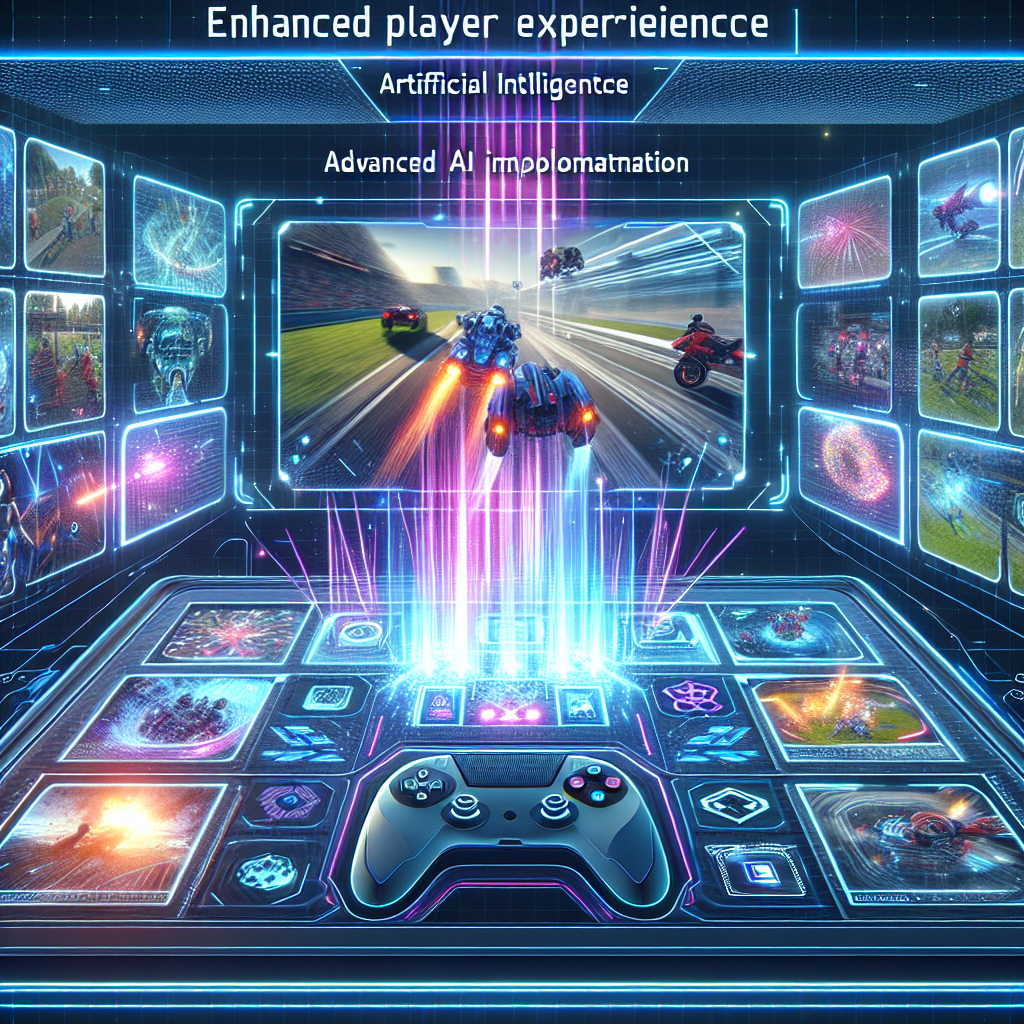In recent years, artificial intelligence (AI) has been making its way into the gaming industry, offering new opportunities to enhance player experience and immerse gamers in more interactive and dynamic worlds. AI in games has the potential to revolutionize the way players interact with virtual environments, providing more personalized experiences and challenging gameplay. In this article, we will explore how AI is being used to enhance player experience in games and discuss its potential impact on the future of gaming.
One of the key ways in which AI is being used to enhance player experience in games is through the development of more realistic and intelligent non-player characters (NPCs). In traditional video games, NPCs are often limited in their behavior and interactions, following pre-programmed scripts and making predictable decisions. However, with the advent of AI technology, game developers can now create NPCs that are more lifelike and responsive to player actions.
AI-powered NPCs can adapt their behavior based on the player’s actions, making the game world feel more dynamic and immersive. For example, in a role-playing game, AI-controlled characters can react to the player’s choices and evolve their relationships with the player over time. This can create more engaging and emotionally resonant gameplay experiences, as players feel like they are interacting with intelligent beings rather than scripted automatons.
Another way in which AI is enhancing player experience in games is through the use of procedural generation. Procedural generation is a technique where game content, such as levels, environments, and quests, is created algorithmically rather than being hand-crafted by developers. AI algorithms can generate vast and diverse game worlds that feel unique and unpredictable, providing players with endless possibilities for exploration and discovery.
Procedural generation can also help to keep gameplay fresh and engaging over time, as players encounter new challenges and environments with each playthrough. This can increase replayability and longevity, as players are incentivized to explore different paths and strategies to overcome the game’s challenges.
AI is also being used to improve player engagement and retention through the use of adaptive difficulty systems. These systems use AI algorithms to dynamically adjust the game’s difficulty level based on the player’s skill level and performance. This ensures that players are constantly challenged but not overwhelmed, leading to a more satisfying and rewarding gameplay experience.
Adaptive difficulty systems can help to make games more accessible to a wider range of players, as they can tailor the gameplay experience to suit individual preferences and abilities. This can help to reduce frustration and boredom, as players are less likely to get stuck on difficult levels or breeze through easy ones.
Overall, AI technology has the potential to revolutionize the gaming industry by enhancing player experience and creating more immersive and dynamic gameplay environments. As AI continues to advance, we can expect to see even more innovative uses of this technology in games, leading to more engaging and memorable experiences for players.
FAQs:
Q: How is AI being used to enhance player experience in games?
A: AI is being used in games to create more realistic and intelligent NPCs, generate procedurally generated content, and implement adaptive difficulty systems, among other things.
Q: What are the benefits of using AI in games?
A: AI in games can enhance player experience by creating more dynamic and immersive gameplay environments, increasing replayability, and tailoring the gameplay experience to individual player preferences and abilities.
Q: Will AI replace human game developers?
A: While AI technology is advancing rapidly, it is unlikely to replace human game developers entirely. AI can assist developers in creating more engaging and innovative games, but human creativity and ingenuity will continue to play a crucial role in game development.
Q: Are there any drawbacks to using AI in games?
A: Some potential drawbacks of using AI in games include concerns about data privacy and security, as well as the potential for AI algorithms to reinforce biased or discriminatory behavior. It is important for game developers to be mindful of these issues and to implement ethical and responsible AI practices in their games.

